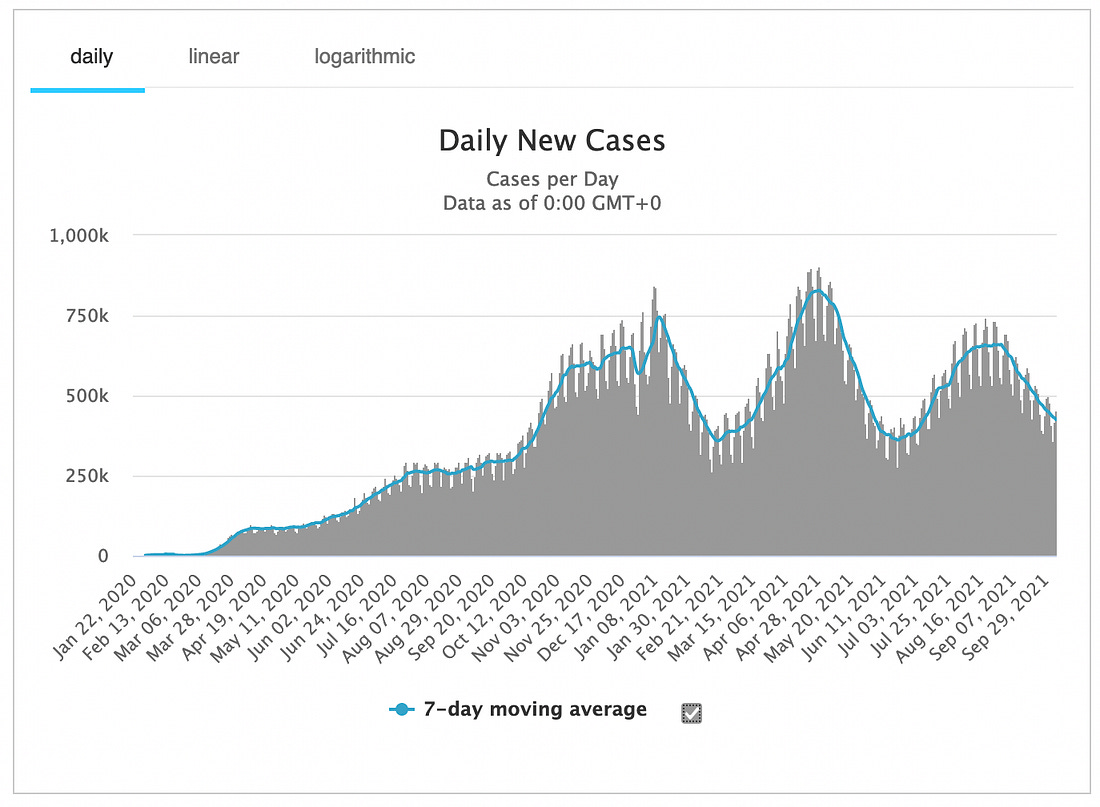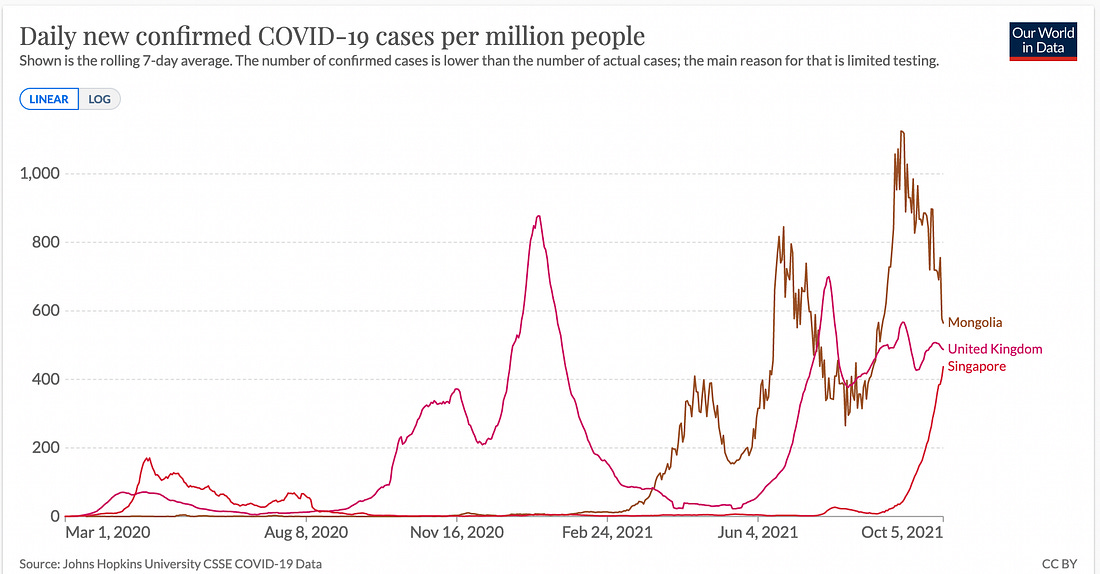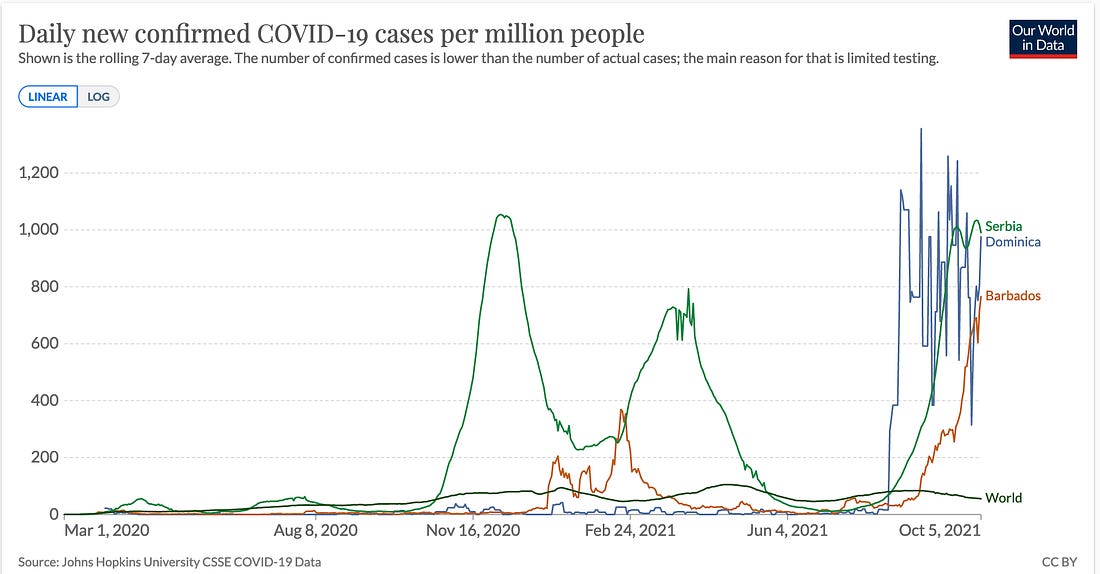The failure of the free market to mitigate the pandemic has upended faith in capitalism and pushed governments to the fore in setting society’s agenda.
(Originally published Oct. 8 in “What in the World“) Once bitten, twice shy. After watching the pandemic ebb in July to the point that U.S. President Joe Biden indulged in his own “Mission Accomplished” moment by declaring premature victory against Covid-19, government officials are responding to the falling case numbers by preparing more vaccine mandates.
No one wants to be surprised by a new surge. So the U.S. isn’t the only democracy imposing health standards on the public. While France has stopped short of a vaccine mandate, it has required that anyone entering many public venues (including cafés) carry proof of vaccination or a recent negative Covid-19 test, for which it has now announced unvaccinated people will have to pay.

Notice that, even as the latest surge in infections ebbs, the role of government isn’t. There’s a reason: the pandemic and our feeble response has exposed the fact that capitalism, free markets and global trade are not only incapable of solving a transnational problem like a pandemic (or climate change), but actually exacerbated it by directing resources to mitigate it disproportionately to the wealthy.
Society is now divided between two extremes: wealthy people free to travel and congregate without much risk of infection and death from Covid-19 at one end, and at the other end those with no choice but to accept high risk of infection and death from Covid-19 to travel and congregate for their continued survival. Most of us are stuck somewhere in between, our freedoms compromised even as we still confront some level of risk.
The danger of falling victim to the virus aside, the pandemic has exacerbated global disparities in income and wealth, an issue explored by prominent economists like Joseph Stiglitz and Hervé Berville in this fascinating interview with The New York Times. Even in wealthy countries, Covid’s toll is borne disproportionately by the less-advantaged and more vulnerable, including children who lose parents or caretakers to the virus and for whom the cost will be lifelong.
And yet the risk posed by Covid-19 remains: a new surge remains a distinct possibility as people take advantage of relaxed restrictions to start mingling again. This is especially true as the nothern hemisphere heads into winter, when humans gather indoors and shut the windows against the fresh, but cold, air—increasing the risk of transmission. That’s bound to lead to a new wave of infections, even among the vaccinated, simply by increasing the amount of encounters between the infected and uninfected. This appears to explain what’s happening in Mongolia, the United Kingdom and Singapore, which have seen persistently high infections even after achieving vaccination rates above 50% back in July.

The greater danger is that as countries with high vaccination rates reopen to gathering and international travel, a new strain emerges in countries that still lack adequate access to vaccines. While much has been made of low vaccination rates in Africa, the pandemic is most intense right now in the Caribbean and former Yugoslavia, where vaccination rates remain below 40%.

And so, with evidence mounting that vaccines lose as much as half their ability to prevent infection within six months, more countries are preparing to administer booster shots. The vaccination authority in Germany, which with almost 65% of the country vaccinated has already started giving boosters to the elderly, this week recommended boosters for anyone over the age of 70. The STIKO also recommended that anyone who received Johnson & Johnson’s vaccine get an additional mRNA vaccine made by either Moderna or Pfizer/BioNTech.